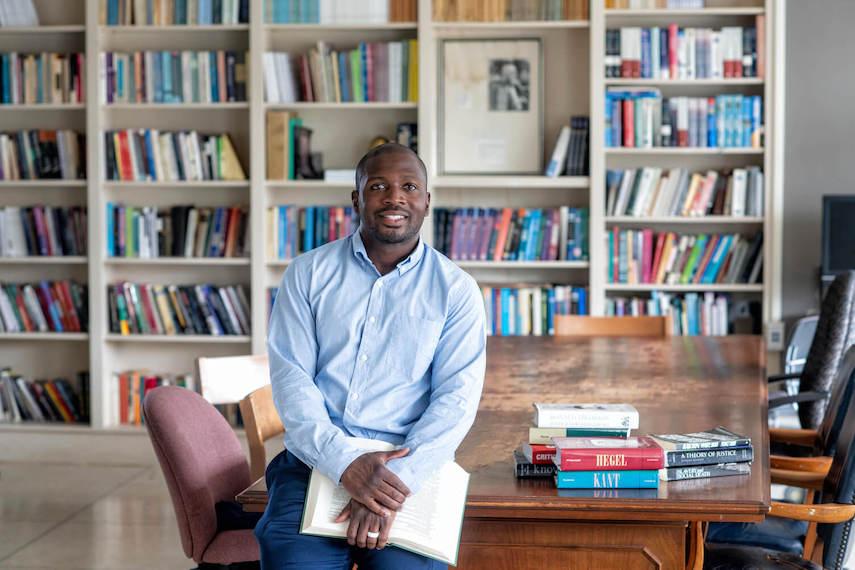Howard students have long debated the role of dead white men in the Howard curriculum. Because Howard is a Black refuge in a nation that tends to center the concerns, perspectives and histories of persons of European descent, it is difficult to determine how we should engage with the Western literary tradition.
My students legitimately question why they must study known racists like Immanuel Kant, David Hume and G.W.F. Hegel. They question Aristotle’s relevance, given that he believed that some people were naturally suited to lives as slaves.
Admittedly, I struggled with these questions as well. My questioning led me to create an “all Black” syllabus for my senior course and to design one on the theory of knowledge. This latter course addressed conspiracy theories, political propaganda, and the active attempts of some Americans to avoid knowledge about racial injustice. I believe that students found the content compelling and liberating.
However, the courses didn’t float free of the Western tradition. Many of the Black authors my seniors cited were influenced by Western thinkers. In my course on knowledge, our discussion of conspiracy theories led us to Hume’s theory of belief formation. Hume thought that beliefs were more a reflection of our emotions and desires than our rationality. This helps to explain why some hold on to conspiracy theories despite overwhelming contradictory evidence.
Additionally, our discussion of ignorance about racial injustice was intimately connected to the Western social contract tradition, which, as philosopher Charles Mills argues, was constructed by European philosophers who ignored the trans-Atlantic slave trade and African colonization. In short, our courses were unable to totally escape the West.
I draw two lessons from my experience. First, many authors in the Western tradition are smart and worth engaging. Howard students benefit from wrestling with Plato’s rejection of democracy and Karl Marx’s critique of capitalism. This engagement is only harmful when it turns into unreflective reverence. Second, engaging with the Western tradition allows students to gain an understanding of their place in a country whose morality, political systems and evils are deeply indebted to Western philosophical thought. This knowledge is an essential component of social change. To be sure, Western thought is but one tool among many.
Howard students are ambitious, bold and mission-driven. They should engage all texts in relation to their larger aims. The future CEO should look to Kant as an example of a thinker who was able to resolve a seemingly intractable dispute between two theoretical camps.
Political science students should use Thomas Hobbes and Jean-Jacques Rousseau to think about why we have governments at all. Aspiring doctors can use John Stuart Mill as a springboard for their own ideas about health disparities and the distribution of medical resources. In addition, Howard professors should continue to think about how to make course content relevant to students’ ultimate objectives. Effort from both sides is needed if Howard students are to continue to be leaders who think radical thoughts that others dare not to.
Brandon Hogan, J.D., Ph.D., is an associate professor of philosophy at Howard University.
Article ID: 156




